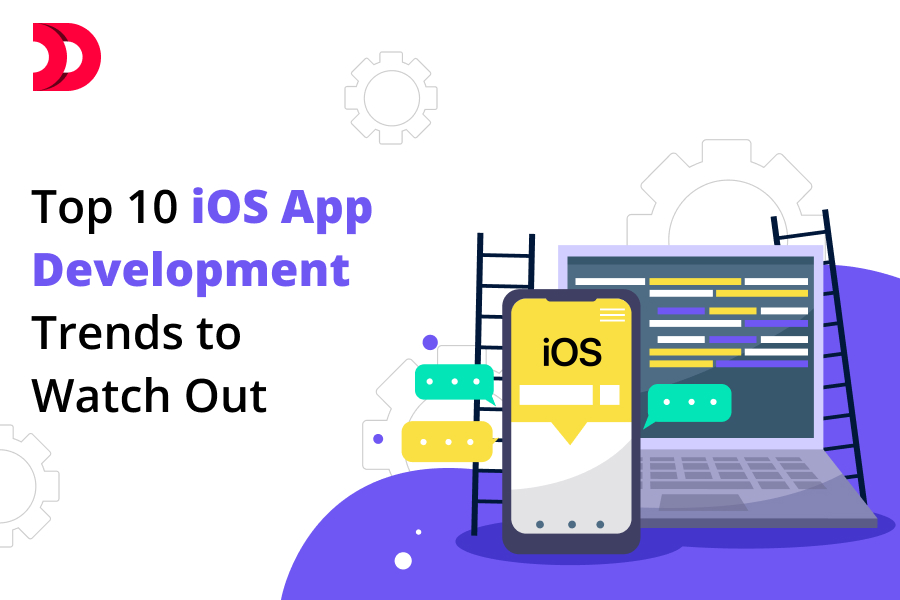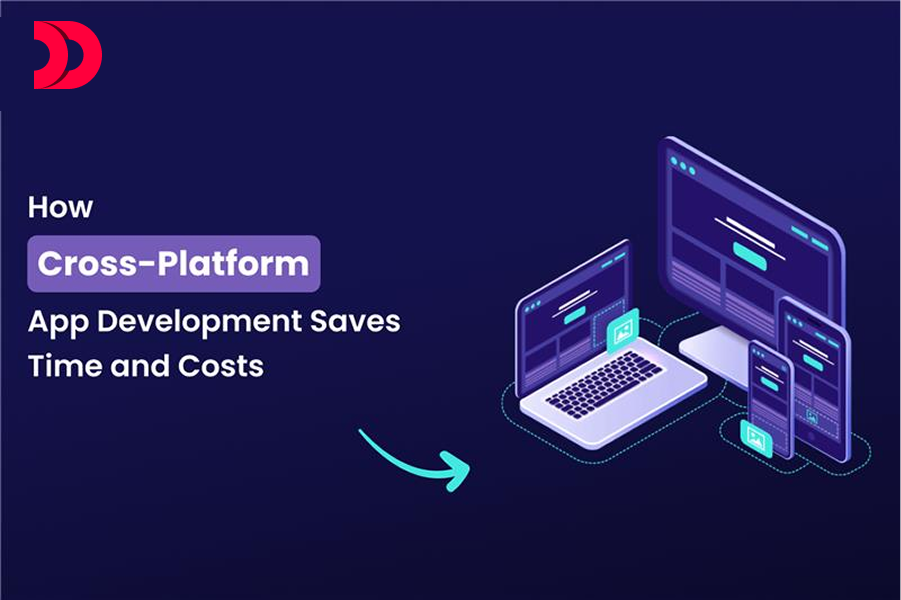Top 10 iOS App Development Trends to Watch Out in 2025

In the contemporary landscape of the mobile application industry, dominance lies in categories such as Educational apps, Social media, and Gaming apps. Staying ahead in this dynamic environment requires organizations to swiftly embrace the latest tools and align with the trend of developing mobile apps for their business needs. To meet the expectations of their target audience, industry giants are increasingly partnering with leading mobile app development companies, recognizing the pivotal role these firms play in achieving branding, marketing, and enhanced customer engagement goals.
As we navigate through the currents of 2025, staying abreast of the latest trends is crucial, especially when it comes to hiring an iPhone developer. Technological advancements continually shape the landscape of Android and iOS app development, and businesses must have an innovative vision for the future. Opting for a feature-rich iPhone app, leveraging the unique capabilities of the device, is often preferred over cross-platform solutions. Here, we delve into the prominent iOS development trends for 2025.
Consumers’ Mobile App Spending Habits
In 2017, global consumer expenditure on mobile apps amounted to $17.6 billion. Fast forward to 2023, and projections estimate this figure to surpass $34 billion. Typically, smartphone users allocate around 3 hours and 10 minutes each day to their devices, with approximately 2 hours and 51 minutes devoted to mobile apps. Despite the multitude of installed apps, actual user engagement is limited, with individuals interacting with only nine apps on a daily basis and about 20 apps within a month. This underscores the importance of integrating the latest features using cutting-edge technologies to ensure sustained user engagement.
Global Mobile App Revenue
The revenue generated by mobile apps worldwide reached $318 billion in 2020, marking a substantial increase of over $60 billion compared to the previous year. Notably, mobile games contributed over $200 billion to this revenue, followed by social networking mobile apps with approximately $31 billion. Projections indicate that the upward trend will persist, with overall revenue expected to reach around $613 billion by 2025.
iOS App Development Trends in 2025
Artificial Intelligence (AI):
AI has undergone a transformative impact on mobile device utilization, initiating with voice assistants like Siri and Alexa.Its influence extends across diverse sectors, encompassing games, business applications, social media, and eCommerce.
Augmented Reality (AR):
The rising popularity of AR persists as it provides an immersive experience by overlaying digital content onto the real world.Businesses are capitalizing on AR for diverse purposes, including product demonstrations, educational content, and interactive experiences.
5G Technology: The advent of 5G technology brings higher speeds and lower latency, making it ideal for data-intensive tasks. Wider adoption is anticipated, with businesses harnessing its capabilities for enhanced user experiences.
Internet of Things (IoT): involves the interconnection of physical devices to the internet, presenting a burgeoning landscape. Businesses can harness IoT to gather data, offering valuable insights into customer behavior. This, in turn, facilitates enhancements in products and services.
Apple Pay: renowned as a favored payment method among iOS users, is anticipated to further permeate the market. Its prevalence is on the rise, with businesses increasingly adopting it. Consumer awareness of Apple Pay is also expected to grow, solidifying its position in the realm of digital payments.
Cloud Kit: Cloud applications for iOS gain prominence, providing efficient data storage, organization, and management without compromising user experience. CloudKit facilitates complex tasks, offering benefits such as simplicity, organization, trustworthiness, and cost-effectiveness.
Foldable Devices: The emergence of foldable devices presents a new frontier in mobile app development. Developers must adapt strategies to ensure smooth app functionality on foldable devices and explore innovative uses of additional screen space.
Chatbots: Chatbots, simulating natural language conversations, enhance customer service by automating routine tasks. They provide instant replies, operate 24/7, cut costs, and contribute to increased customer satisfaction.
Blockchain: Blockchain technology, known for secure and transparent transactions, is anticipated to impact various industries, enhancing efficiency and security in business ecosystems.
Swift 5: Apple Swift, a leading programming language, continues to gain traction for its security, scalability, and simplicity.
Conclusion:
Developing an iOS app may seem daunting, but contemporary tools and solutions simplify the process, elevate technical quality, and enhance user experiences. In this context, partnering with an iOS app development company proves to be an efficient option. Companies like Devstree Australia are positioned to navigate these trends, providing comprehensive solutions that align with the ever-evolving landscape of iOS app development. The commitment to impenetrable protection and adherence to security standards position them as key players in ensuring a secure and seamless app development journey for businesses in the digital age.
Let's build or improve your Digital Product
Transform your digital vision into reality with our expert services, guiding you to build a cutting-edge digital product that exceeds expectations and empowers your business for success.
Let's talk





.svg)

.svg)





.png)













originil.webp)

originil.webp)

